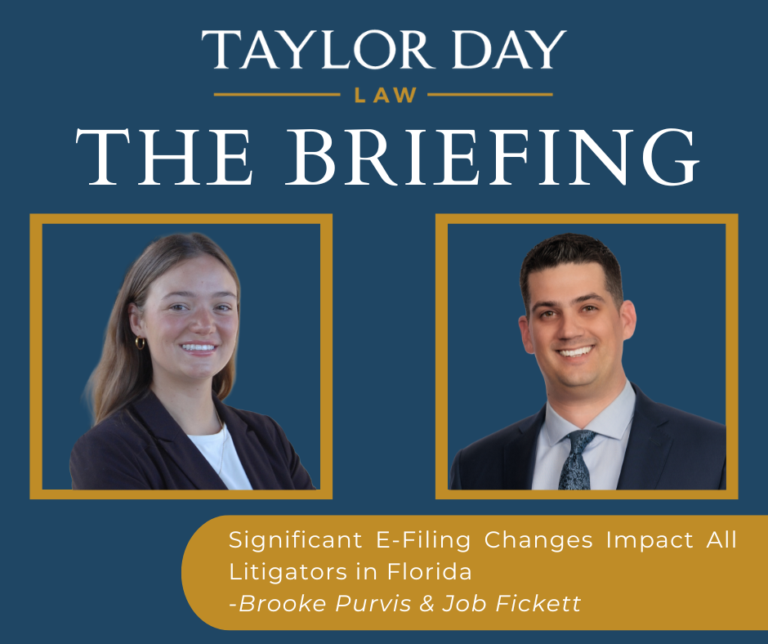Florida’s electronic court filing system is entering a new era of modernization, with important procedural and fee-related updates taking effect July 1, 2025. These changes are designed to streamline court operations, improve transparency, and ensure the long-term sustainability of the E-Filing Portal.
The Florida Supreme Court’s “E-Everything” rules package (case SC2023-1401), released in March 2025 and effective July 1, 2025, has officially standardized several long-standing e-filing practices. Among the most significant updates is the revision to the “Correction Queue” system. Clerks of Court will now use seven standardized reasons for placing a filing into the Correction Queue, rather than the previous “free-text” system. A filing will only be placed in the Correction Queue, and not docketed, if it:
- Is filed after a case number has been assigned but lacks the correct number, and the correct number cannot be reliably identified;
- Lacks a case style or contains the wrong case style;
- Combines multiple documents filed as one document;
- Splits a multi-page document into separate files;
- Is a proposed order, unless filed under a notice of filing to preserve the record;
- Is illegible, corrupt, or blank; or
- Is barred by court order or otherwise incapable of being filed in the clerk’s case maintenance system.
To improve transparency, filers will receive a standardized copy of their original submission, which will be marked with a date and timestamp. This allows filers to retain verifiable proof of submission of documents to the portal. If challenging a rejection, this original copy must be attached to any judicial review request. Items in the Correction Queue will now be held for 30 days (up from five), giving filers more time to address issues.
To address rising payment processing costs, especially from credit card use, the Authority Board of Directors is adjusting the credit card convenience fee from 3.5% to 3.95%, while the ACH fee will remain unchanged at $5. These adjustments are part of a new budget aimed at offsetting a projected $700,000 shortfall for FY 2024–2025.
The E-Filing Authority is evaluating proposals to broaden access to court records through the Portal. Currently, attorneys can access filings in cases they are linked to, including up to 30 days after a case is closed. Future enhancements may allow attorneys and authorized users to view additional case materials consistent with existing privacy and access protocols.
There are several other changes to the Rules of General Practice and Judicial Administration, including clarifications regarding computation of time and filing deadlines, intended to simplify the practitioner’s understanding of how the Rules are intended to function. For example, Rule 2.514 is revised to clarify how different time periods are calculated, and further, that electronic service deadlines are no longer “midnight” on the last day for service but 11:59:59 Eastern Time.
With these changes to the Rules, as with many other sweeping changes implemented over the past few years, the Supreme Court of Florida continues to modernize, simplify, and “federalize” the Rules of Practice and Procedure to more closely resemble the verbiage, impact, and style of the Federal Rules of Civil Procedure.

